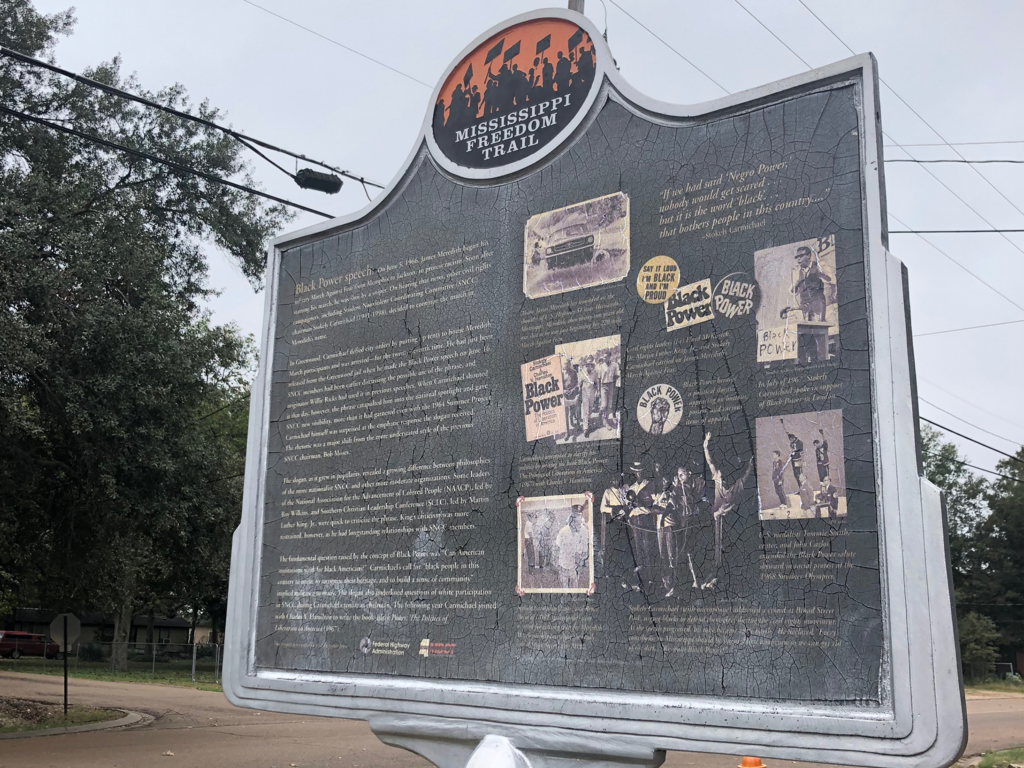Rhodes offers students invaluable opportunities to spend semesters studying abroad or across the U.S., often as a way to ground academic pursuits with real-world experiences. Students in the English course Voices of the Delta had the unusual opportunity of traveling during a regular campus course, along with faculty members, to engage with the history, culture, and landscape they’re currently studying in class.
During the course, students have focused on different texts that highlight the complex history of slavery, racism, and civil rights in the Mississippi Delta. The region spans the northwest corner of Mississippi from Memphis to Vicksburg, and encompasses the land between the Mississippi and Yazoo rivers. The Delta is known for its booming cotton industry during the antebellum period and for its history of tense race relations, which helped spark the civil rights movement.
The class has studied the history and the culture of the Delta through the works of Paul Hendrickson, Richard Grant, Eudora Welty, Anne Moody, Kiese Laymon, Arthur Flowers, William Faulkner, and David Ridgen. During their trip to Mississippi, students visited the homes of Medgar Evers, Welty, and Faulkner, and historic sites such as Bryant’s Grocery and the ETHIC Museum, in addition to several cities, including Greenwood and Clarksdale.
Amanda Lane ’19, an anthropology/sociology major and English minor, says the trip provided context for her studies. “By traveling to the Delta, I was face to face with many of the places and experiences I have read so much about. While we have discussed and read about these experiences and people in class, nothing can stand in for a personal experience and relationship with a place.”
The class was accompanied by Chanelle Benz of the Department of English, Dr. Noelle Chaddock of Africana Studies and associate dean of academic affairs for diversity and inclusivity, and William Randolph Hearst Teaching Fellow in the Department of Religious Studies Dr. Duane Loynes. The personal experiences and observations they shared with the class were made even more powerful by touring different historic sites.
For Loynes, this meant visiting the sites critical to understanding the story of Emmett Till’s murder.
“My first encounter with the story of Emmett Till, the 14-year-old youth slain in Mississippi for the alleged crime of whistling at a White woman, was the July/August 1995 issue of Emerge, a now-defunct magazine that focused on Black socio-political issues. The cover featured Till’s mother, Mamie Till-Mobley, holding a photo of her son. A few years after that issue, I would have the privilege of meeting Till-Mobley and listening to her share Emmett’s story while sitting in her kitchen,” says Loynes.
“The Voices of the Delta trip was the haunting culmination of that meeting. It allowed me the privilege of visiting the hallowed ground of Emmett’s painful last day on Earth. It was a deeply transformational experience, one that I wish all Rhodes students could share.”
By Katherine Hancock ’19
